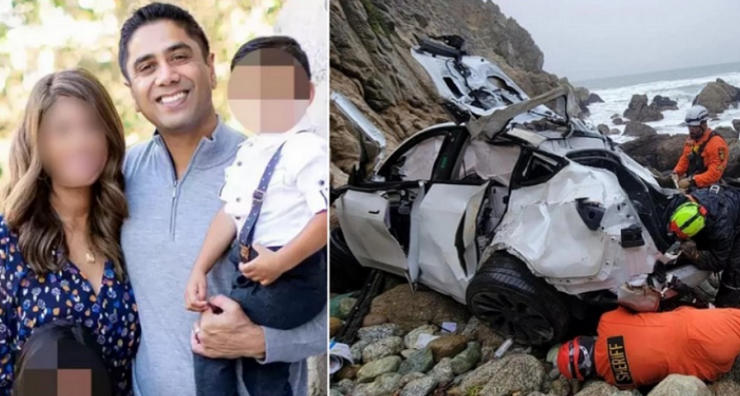
Tonight the Public Safety Committee will sit in session with the balance of the full City Council in a joint meeting to, once again, take stock of consequences of the March, 2012 shooting of Kendrec McDade. That shooting and its fallout have roiled the Committee’s meetings for over three and a half years.
The man at the center of tonight’s event is Pasadena Chief of Police Phillip Sanchez.
Although he has said little in public in reaction to the contents of the Office of Independent Review report analyzing the shooting, tonight, as Sanchez and his commanders respond to each recommendation made by the report, it is expected he will reveal even more about how he chose to handle the shooting’s investigation and the departmental changes he is implementing in its wake than is included in the meeting’s agenda documents.
“This is a tragedy,” Sanchez said shortly after the public release of the OIRG report. “It’s a tragedy for Anya Slaughter, it’s a tragedy for Mr. McDade. Kendrec isn’t here. Equally important, it’s a tragedy for my officers. And for this department, and for me.”
“I bear the burden. It’s not the burden of poor decision-making. It’s not the burden of guilt. It’s the burden that a young man is dead at the hands of my officers, who did it within the confines of the constitution and the law, policies and procedures, and based on the training they received,” Sanchez said.
Pasadena Police Department critics have seized upon virtually every OIR recommendation as evidence of police negligence, ineptitude or malfeasance since the report was released in November after a lengthy court battle.
Two decisions in particular made by Chief Sanchez in the wake of the shooting and detailed in the OIR report have troubled many observers: the Chief’s decision to not authorize an administrative investigation of the event before conducting the officers’ administrative review meeting, and, his decision to not invite the OIR investigators to attend the officers’ administrative review meeting.
Critics and activists have said that these decisions indicate Sanchez was more interested in protecting his officers than getting at the truth or disciplining them.
In an interview in his office in late November, Chief Sanchez explained how he arrived at both decisions.
“First of all, there was an independent criminal review. There was an independent review by the Los Angeles County District Attorney’s Office. There was an independent review by the FBI Civil Rights Violation Office. There was a review by the Internal Affairs Division and Independent Review. And there was also then the OIRG report that was generated. So those were all the aspects of the review process that we looked at,” Sanchez said.
“As part of that criminal investigation, the officers gave voluntary and very robust statements about what had occurred. They included their state of mind, they included tactics, they included the equipment they used, the direction of travel, in all aspects.”
“If the criminal investigation is so robust, so comprehensive, and it includes voluntary statements of the officers with respect to state of mind, tactics, decision making, those kind of things. And OIRG complimented the police department for that robust investigation. If the framework of that investigation is then used for the admin review, then doesn’t it go that if one is robust, the others is as well?”
“Internal Affairs reviewed all the documents from print, photographs, witness statements, including the officer statements, evidence, all of measurements, all that, and they put together a PowerPoint presentation for me and senior staff, which included the City Attorney’s Office, to look at that dynamic, the administrative review.”
“It goes to that same process … whether it’s a baton strike or a Taser, K-9 contact or an officer involve shoot: a very comprehensive review, administrator review and a subsequent presentation to me and the senior staff. And as noted in the OIR report, and I think accurately, each of the commanders and the subject matter experts are gathered in a room and we look at the presentation. And then independently the commanders offer their perspective and opinion about the activity of the officer.”
“Then I reach a conclusion based on my own experience and my own information based on the robustness of the internal direct process about whether it’s in policy or out of policy.”
“I keep going back to, in hindsight, if I could have asked them additional questions. Through the administrative review process, through internal affairs. I believed at the time, however, that the Crim[inal] report was so robust — vetted by the District Attorney’s office, vetted by FBI, vetted by my own detectives — that I would not have received additional information.”
Sanchez also addressed his decision to not invite the OIR Group to attend the officers’ administrative review, saying he was unaware that the City’s contract required OIR representatives be present.
“I take responsibility for the principals from OIRG not being in the administrative review,” Sanchez said. “I’ve read the contract now right before our interview. It says that they are supposed to be there. But I erred based on influence of my people and then I erred because I thought that 832.7 of the penal code [which protects personnel privacy] prevailed in that regard. So it wasn’t malicious or contrived. At the time I thought I was doing the right thing.”
Sanchez also discussed another criticism of the investigation which has drawn the ire of activists: the fact that both of the officers involved in the shooting were provided access to video and audio prior to being interviewed by investigators, which the OIR concluded denied the Department the ability to get “a pure statement of the officers’ observations.”
The OIR Group said this practice — which is currently dictated by a union agreement — must be changed, but Sanchez does not agree.
“Prior to my arrival at the Pasadena Police Department … the labor union and the administration came to an agreement that officers would be allowed to listen to audio recording and to view what is commonly referred to as the MAV, mobile audio video system, that are [mounted] in the rear of cars when there are officer involved shootings,” Sanchez said.
“Interestingly enough … that has been a common practice in law enforcement for decades. I think it was well articulated a few city council meetings ago when an officer who was working the suicide on the bridge described his experience and then when the victim ultimately chose death was expected … to … recount everything that occurred over seven hour period.”
“While the officer relied on the value of the audio recording of that incident so that they could go back and review that and be able to provide accurate information.”
“Part of the problem is, I think, that there are physiological changes that occur to an officer cognitively and sometimes preclude the officer from remembering exactly what occurred.”
“There are also studies that suggest without that information, the officer can’t possibly … recount exactly what occurred,” Sanchez said.
Among the 26 recommendations made the OIR group, a number relate to tactical errors purportedly committed by the officers, from driving down an alley so narrow the patrol car doors were scraped to foot pursuit activity, to the execution of a “boxing in” manouver.
“If the tactics were so grossly negligent by the officers can’t we assume that the District Attorney’s Office would have filed charges on the officers for gross misconduct or gross negligence? Absolutely. Do we need to work on those tactics? Absolutely. Do we provide that training for the officers? Yes. Commended by OIR themselves,” Sanchez said.














 0 comments
0 comments


